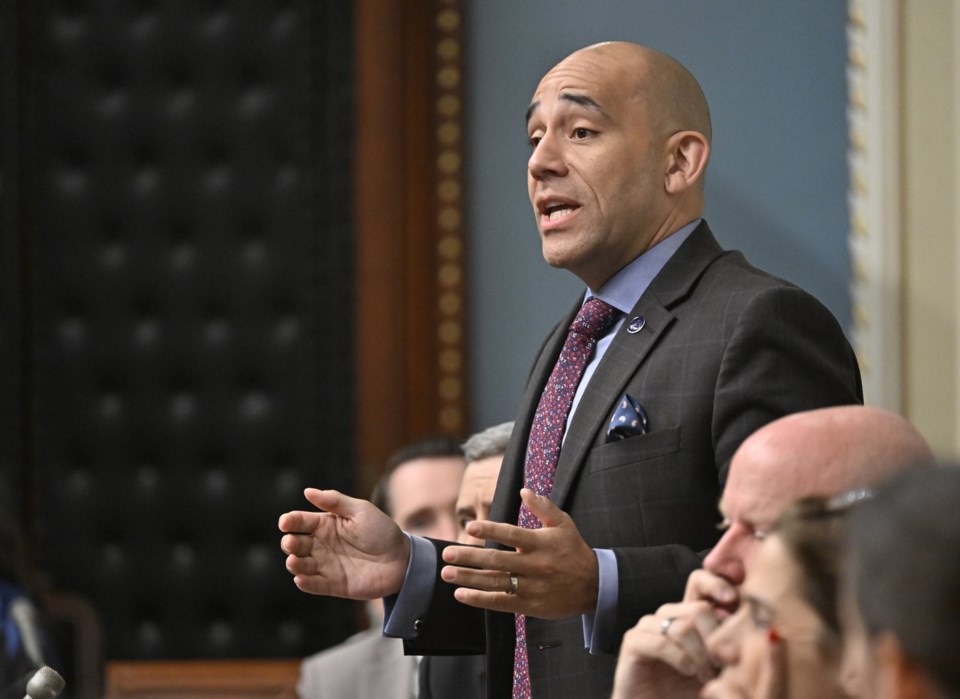MONTREAL — A Quebec minister responsible for fighting racism is criticizing a ruling by a judge who reduced a convicted Black man’s sentence due to systemic discrimination.
In an interview with The Canadian Press, Christopher Skeete said that someone’s race should not be a factor affecting sentencing for a crime.
“I question whether or not as a society this is exactly where we want to go,” the minister said. “Do we really want to formalize discrimination in the attribution of sentences for people who perpetrate crimes?”
Skeete was reacting to a Quebec court ruling by Judge Magali Lepage, who sentenced Frank Paris, 52, to a two-year sentence in late July, after he pleaded guilty to charges of trafficking cannabis and hashish.
Paris’s lawyer, Andrew Galliano, said the Crown had initially pushed for a four-year sentence in a case heard in Longueuil, near Montreal.
Because he got credit for time served, Paris has already been released, his lawyer said.
“It was surreal to have him walk into my office the next day and to be able to shake his hand and congratulate him, because it took courage from him too,” said Galliano.
The lawyer said he argued for a reduced sentence after submitting a report that described his client’s background as an intergenerational survivor of slavery.
Though he was raised in Montreal, Paris’s mother was from Nova Scotia, and he often spent his summers in a town in the central part of the Atlantic province, where “these traumas continue to be felt and experienced in the education, housing, employment, health and justice systems,” the report noted.
The report described how Paris faced racial discrimination multiple times, including an incident when he was wrongfully detained in a holding cell for immigrants despite being a Canadian citizen.
Galliano said this type of report is commonly used in criminal proceedings in provinces like Nova Scotia where the courts have recognized the impacts of systemic racism.
“Quebec is far behind," the lawyer said. "And that's what I pleaded to the judge.”
Skeete, who initially described the sentence on social media as a “sad first for Quebec,” said he wanted to initiate a public debate about the matter.
The minister added he respects the independence of courts in Quebec.
“What we're trying to do is to correct the historical wrong, but the problem is we're creating new injustices, and we're creating two types of citizens: one that is racialized and one that isn't,” Skeete told The Canadian Press.
“The fight against racism has always been one about equality under the law, yet here, we’re actually well intentioned but creating inequality,” he added. “I don't think that creating more inequality is the solution to the problem.”
Montreal defence lawyer Sharon Sandiford played an advisory role in the case.
She said the minister appears to have misconceptions about what kind of instructions sentencing judges must adhere to.
“What the judge did in Mr. Paris’s case was to apply exactly what the case law has required her to apply,” Sandiford said.
This report by The Canadian Press was first published Aug. 7, 2025.
Miriam Lafontaine, The Canadian Press



